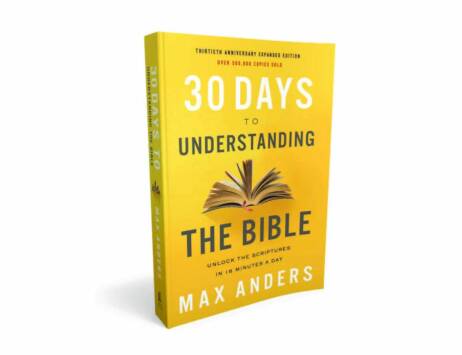Over the past year, our world has done its fair share of lamenting. Whether it was loss of life, loss of seeing family and friends, or loss of employment or housing, we know and have felt the pain of loss deeply.
Within the Bible, the book that most likely paints a familiar picture of what we have experienced is the Old Testament book of Lamentations.
A Poetic Eulogy for a City
The book of Lamentations is written by the prophet Jeremiah in the wake of Jerusalem’s destruction. It is a tearstained portrait of the once-proud Jerusalem now reduced to rubble by the invading Babylonian army.
The way Jeremiah writes this eulogy for Jerusalem is unique. He writes his lament in acrostic or alphabetical fashion. Beginning with each chapter with the first letter A (aleph), he progresses verse by verse through the Hebrew alphabet. Literally, he weeps from A to Z.
If a Scarlet Thread of Redemption exists throughout the Bible, where can we find Jesus in Lamentations? Or put more plainly, how can we find Jesus in times of lament?
The Christ of Lamentations
The weeping prophet Jeremiah is a type of Christ-figure. In Matthew 23, Jesus weeps over the impending destruction of Jerusalem just as Jeremiah did six centuries prior. “O Jerusalem, Jerusalem, the one who kills the prophets and stones those who are sent to her! How often I wanted to gather your children together, as a hen gathers her chicks under her wings, but you were not willing! See! Your house is left to you desolate” (Matt 23:37-38, NKJV). Like Jesus, Jeremiah identified personally with the plight of Jerusalem and with human suffering caused by sin.
Lamentations also includes elements that typify Christ’s life and ministry as the man of sorrows who was acquainted with grief. He was afflicted (see 1:12; 3:19), despised, and derided by his enemies (see 2:15-16; 3:14, 30).
Where Do We Turn in Times of Lament
Reading Lamentations can be difficult. Over and over, we feel Jeremiah’s heartache and sadness for his home, his people, and the city of God. During the tragic storm, however, Jeremiah triumphantly cries out, “Great is Your faithfulness!” (3:23, NKJV).
In the face of death and destruction, with life seemingly ripping apart at the seams, Jeremiah turns tragedy into a triumph of faith. God has never failed him in the past. God has promised to remain faithful in the future, even if His people aren’t. In the light of the God he knows and loves, Jeremiah finds hope and comfort.
Similarly, Jesus knew the cross awaited Him. He endured God’s wrath for humanity because He ultimately trusted God’s redemptive purposes and promises.
We, like Jeremiah and Jesus, will face hardships in this life. As we stated earlier, this past year was a dark period for many individuals all over the globe. For Christians, this darkness isn’t the end of the story; your pain and loss do not define your identity or existence. Rather, we continue to live through times of lament knowing and trusting in God’s daily mercies. In these times, if we lean into lament, God can shape us, change us to be more like His Son.
As Jeremiah says, “The Lord is good to those who wait for Him, to the soul who seeks Him It is good that one should hope and wait quietly for the salvation of the Lord” (3:25-26, NKJV).
For more information on the Scarlet Thread of Redemption in other books of the Bible, check out The Open Bible. Available in the KJV, NKJV, and now the NIV.





